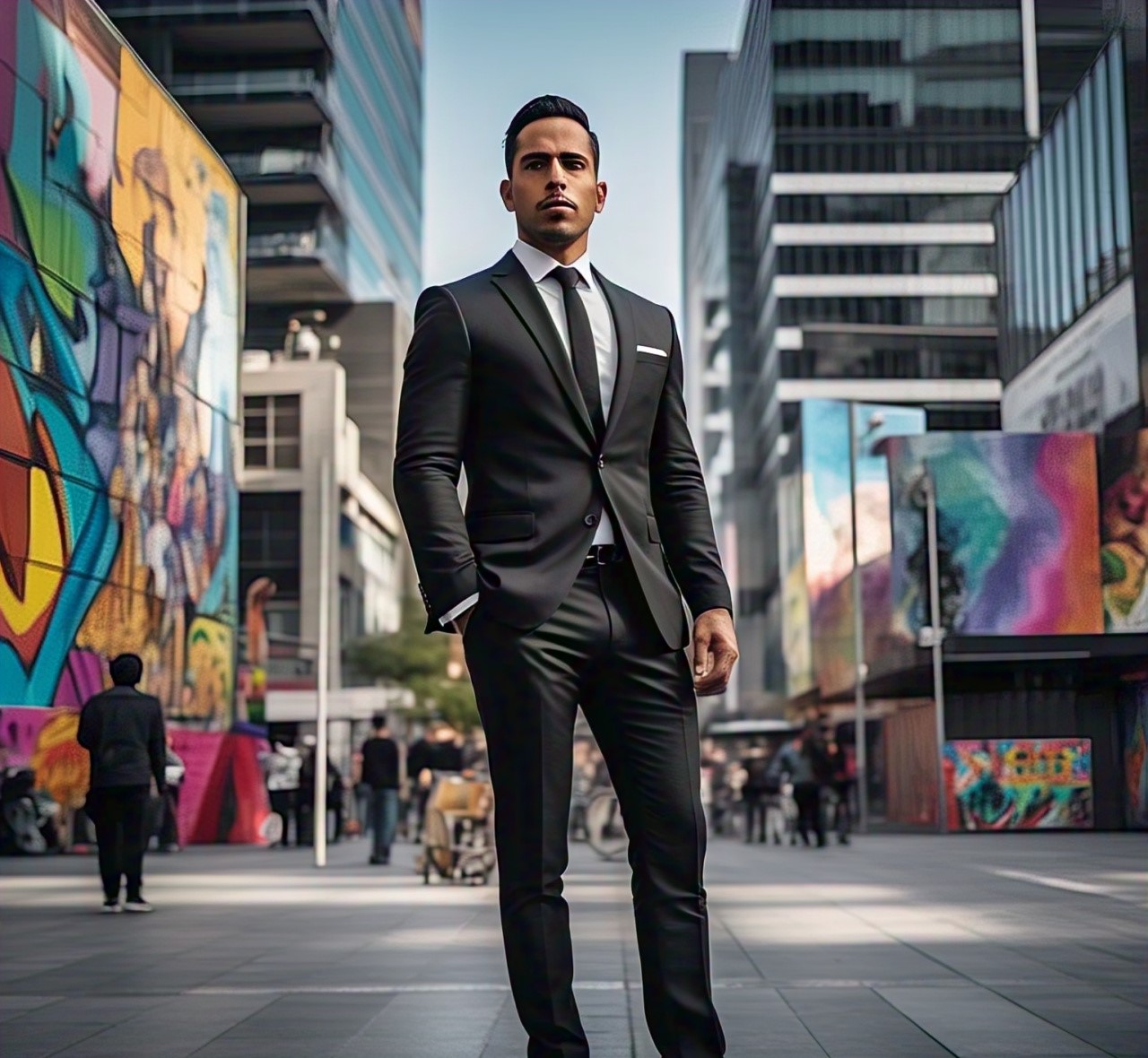I will start this article by the copying and pasting another beautiful discuss by Ryan Holiday on his Daily Stoic Podcast:
“If it is not right, do not do it,” Marcus Aurelius wrote, “if it is not true, do not say it.” But it’s worth pointing out that as a philosophy, Stoicism demands more of us than just this negative. As Marcus would also point out, “Often injustice lies in what you aren’t doing, not only in what you are doing.”
So, first, do not lie. But, second, sitting by and allowing a lie to stand? These can both be injustices. No Stoic would argue that fraud is permissible. But what if you witness fraud? What if you suspect a fraud is occurring at your work or in your industry or in government? Nassim Taleb bridges these two quotes from Marcus perfectly: “If you see fraud and do not say fraud, you are a fraud.”
Be the person that stands up. Be the person that lends a hand. Be the person that actively does good, that is courageous and generous. It’s not enough to simply not do wrong. We are called to do more than that, we are held to a higher standard. “Injustice anywhere is a threat to justice everywhere,” is the line. It’s true. Don’t turn a blind eye. Don’t make it someone else’s problem.
Do the right thing. The rest doesn’t matter.
Daily Stoic Podcast By Ryan Holiday
Stoicism by some people is often misunderstood as a passive philosophy, a school of thought that teaches us to endure hardship silently, to detach from emotion, and to simply avoid doing wrong, but that is just only part of the bigger picture. True Stoicism, as practiced by thinkers like Marcus Aurelius, demands far more than restraint; it calls for responsibility.
Marcus Aurelius once wrote, “If it is not right, do not do it; if it is not true, do not say it.” This has become one of the most repeated Stoic principles but there is a deeper layer we most times overlook. Somewhere else in his writings, Marcus Aurelius reminds us that “often injustice lies in what you are not doing, not only in what you are doing.” In other words, failing to act can be just as damaging as acting wrongly.
Silence in the face of dishonesty, inaction in the presence of suffering, looking the other way when something clearly is not right; these, too, are moral failures. And as Nassim Taleb clearly puts it: “If you see fraud and do not say fraud, you are a fraud.”
The Standard is More Than Avoiding Wrong
Many people think of moral living as simply avoiding bad behavior like don’t lie, don’t cheat, don’t steal, and of course that is a good start. Marcus Aurelius covers this ethic very clearly when he said: “If it is not right, do not do it; if it is not true, do not say it,” and this forms the foundation of integrity, doing no harm.
But for the Stoics, that was never the end of the road, again, stoicism is not a passive moral code. It does not stop at “don’t do wrong,” because it goes further to demand that we actively pursue what is right. And as Marcus also warned, “Often injustice lies in what you are not doing, not only in what you are doing.”
Injustice is not always loud; it can be silent. It can look like apathy; it can hide behind phrases like “It is not my place,” or “Someone else will handle it.” But for the Stoic, failing to act in the face of wrong is, in itself, a failure of character.
The point here is that: Right living means more than personal restraint; it means personal responsibility.

The Sin of Silence: When Inaction Becomes Injustice
We sometimes tend to think of wrongdoing as something we do, a lie we tell, a promise we break, a rule we violate, but again, Marcus Aurelius challenges that view. He warns us that we can be unjust not just by what we commit, but by what we permit.
“Often injustice lies in what you are not doing…” he writes. That means injustice can thrive not just because of bad actors, but because of silent bystanders. We let things slide, we let wrongs stand, we pass the buck, we look away, but another very big problem here is that in doing so, we become part of the problem.
There is a moral cost to inaction. Walk with me here and let us think of:
- The person who witnesses abuse and says nothing.
- The coworker who watches fraud unfold and stays silent.
- The friend who lets a lie live because it is inconvenient to speak up.
These people may not have committed the original wrong but their silence gives it space to grow because inaction, in these moments, is a quiet endorsement.
The Stoics believed that justice is not passive; it does not just mean avoiding corruption; it means standing up against it, because when we choose silence where truth is needed, we are not preserving peace, we are betraying it.
Bystander effects can make someone hesitate to act or offer help, as they assume that others will do so or feel less responsible if others are present.
Imagine this: you’re walking along the street and hear someone calling for help. The victim is being attacked; what would you do? We would all like to believe that we would intervene or at least call 911. The truth is that this isn’t what always happens.
The bystander effect is the tendency of people to remain passive in situations involving serious danger due to other bystanders.
Bystander apathy is also known as the bystander effect. It refers to the phenomenon where the more people present, the less likely they are to assist someone in distress.
You would definitely help someone in need if you saw an emergency unfolding right in front of you, wouldn’t you? Psychologists suggest that while we may all want to believe this, the fact is that it could depend on how many witnesses are present.
Continue Reading: What is The Bystander Effect in Psychology?
Seeing Fraud and Saying Nothing
Nassim Taleb gave a deep cutting insight when he said, “If you see fraud and do not say fraud, you are a fraud.” It is a harsh statement but one that aligns perfectly with Stoic philosophy.
If you witness wrongdoing and remain silent, you do not just fail a moral test, you become complicit to the wrongdoing. Stoicism is a philosophy of action and virtue, not comfort or self-preservation and integrity means having the courage to speak up, even when it is inconvenient or uncomfortable.
Again, let us think, let us think about:
- The workplace scandals that have gone unreported for years.
- The corruption in politics that persists because of collective silence.
- The harmful behavior in communities and families that people excuse or ignore.
These situations do not persist in isolation; they continue because people see and say nothing. The Stoic does not ask, “Will this make my life harder?” but rather, “Is this the right thing to do?”
Marcus Aurelius did not write his Meditations to impress anyone; he wrote them to hold himself accountable, and as such, we too must examine our own silence. When we fail to name what is wrong, we risk becoming the very thing we claim to oppose, because the real test of character is not just avoiding the lie; it is very very much about calling out the lie when it matters most.
Many of us in one way or another are adamant about being a voice for what’s right from a religious standpoint or a fairness/justice standpoint. In my conversations with friends and acquaintances within my social circle over the last month, I’ve concluded that a large percentage of them prefer to go along with the flow and turn off what they perceive to be “wrong” that they encounter, rather than standing for the truth regardless of how they feel.
and you will know the truth, and the truth will make you free. – John 8:32
Can you really say you know the truth; If you can’t stand up for it?
And can you really say you are free; If you can’t stand up for knowing the truth?
Continue Reading: Standing For The Truth Regardless Of How You Feel
The Call to Courage and Generosity
The Stoic ideal is not simply to avoid evil, but to actively do good, intentionally, and consistently. Virtue, in Stoicism, is not passive; it demands engagement with the world; it demands courage; it demands generosity.
So being a stoic, a christian, a good person does not mean retreating into isolation or detachment; it means stepping into responsibility. It means being the one who lends a hand when others look away; it means standing up for what is right, not because it is easy, but because it is just. But too often, people hide behind the idea that “I did not do anything wrong,” as if that is enough, but the stoic sees that doing nothing can itself be wrong, it can be selfish, it can be cowardly. Especially when doing something, even something small could make a difference.
We are not here to simply avoid blame, we are here to live well and act well, and that means risking comfort; that means facing resistance, and that also means doing the hard thing when the moment calls for it.
Whether it is defending someone being mistreated, confronting corruption, or simply offering your time to someone in need, virtue is active: It moves toward justice! It moves toward love! It moves toward others!
Take this to heart: A good person is not just harmless; they are helpful.
Do the Right Thing, Always!
In the end, Stoicism leaves us with a clear and powerful charge: Do the right thing, no matter what. Not just when it is easy. Not just when it is safe. Not only when it costs us nothing, but always!
That is the higher standard! That is what Marcus Aurelius, Epictetus, and Seneca all pointed to, virtue is the only true good. Reputation, comfort, even life itself, none of these are more valuable than living with integrity.
- So what if speaking up makes you unpopular?
- So what if doing what is right costs you a promotion?
- So what if taking a stand puts you at risk of loss or criticism?
The Stoic answer is: That is irrelevant because right is right! Truth is truth! Justice is justice!
“Injustice anywhere is a threat to justice everywhere,” Martin Luther King Jr. once said. That is not just a social warning; it is a personal one. If we want to be people of character, we cannot be selective in our values, we cannot only care when it is convenient.
The world does not just need people who avoid doing wrong; it needs people who are committed to doing right, and stoicism, at its core, is a call to live that kind of life.
Read Also: Beyond the Giving: The Heart of True Generosity
Read Also: An Eye For An Eye Leaves The Whole World Blind
Read Also: Ultimate Guide to Building Your Integrity
Conclusion
It is not enough to simply avoid evil; it is not enough to stay quiet, to remain neutral, to wash our hands of the world’s wrongdoings. Stoicism calls us to more; it calls us to action! To have courage! To moral clarity!
As Marcus Aurelius reminds us, the failure to act can be just as unjust as the act itself. And as Taleb puts it bluntly, when we see wrongdoing and say nothing, we become part of the problem.
So what do we do?
- We speak the truth!
- We resist the urge to look away!
- We refuse to be silent when justice is on the line!
- We do not just avoid sin, we seek out good!
- We show up!
- We intervene!
- We step forward!
The Stoic do not simply live; they live well and that kind of life is not measured by what we avoided, but by what we embraced:
- The good we did!
- The truth we stood for!
- The people we helped!
- The courage we showed!
Because in the end, your legacy will not be shaped by all the wrongs you avoided, it will be defined by the right you were willing to do.
So do the right thing. The rest doesn’t matter!!!!!!!!!!!!!!!!!!





